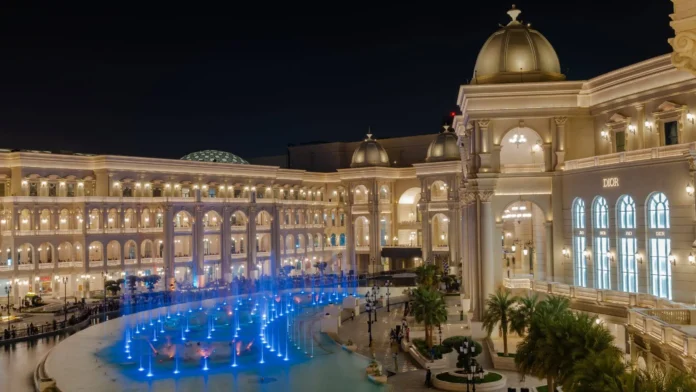Qatar retail market shows steady resilience despite ongoing challenges. The Qatar retail market continues to balance growth with pricing pressures across various segments. Organized retail now makes up 2.5 million square meters of leasable space, nearly half of the country’s total shopping area. This reflects a gradual but steady expansion in retail facilities.
Moreover, the Qatar retail market benefits from new supply in both organised and unorganised sectors. For instance, Centro Mall added 2,500 square meters, while the newly opened Outlet Village contributed 30,000 square meters to organised retail. Additionally, unorganised retail increased by about 20,000 square meters, mainly in high-demand areas like West Bay and Lusail Marina. These developments indicate strong commercial interest in key zones.
Rental trends across Qatar retail market remain mixed. Shopping center rents stabilized at an average of QR182.5 per square meter monthly. However, this figure represents a 5.9 percent drop compared to last year. Landlords continue negotiating aggressively to fill vacancies, especially in locations with lower foot traffic.
Street retail rents showed more variation in the Qatar retail market. Within Doha, rents increased slightly by 1 percent compared to the previous quarter but dropped nearly 10 percent year-on-year. Areas such as Al Sadd, Al Bidda, and Duhail experienced this trend. Meanwhile, outside the capital, rents fell by 1 percent quarterly and 2 percent annually. Locations like Umm Salal, Ain Khalid, and Al Wakrah saw declines between 5 and 10 percent.
Furthermore, consumer behavior affects the Qatar retail market significantly. Many shoppers prefer online purchases or visiting larger malls with enhanced amenities. This shift leaves some high-street retail areas under pressure. Industry experts suggest landlords and tenants adapt by focusing on consumer expectations and experience-driven retail environments.
In addition, recent government efforts streamline business setup for foreign investors. This move boosts commercial activity and supports retail growth. Industrial segments also show promising signs with rent increases in storage facilities, further supporting the broader retail ecosystem.
The Qatar retail market faces the challenge of balancing expansion with changing shopping habits. As retailers and landlords adjust strategies, the market adapts to a more consumer-focused and experience-led approach. The months ahead will reveal how well this balance sustains growth and resilience.
Overall, the Qatar retail market remains strong and attractive to investors. Its mix of new retail spaces, rental adjustments, and shifting consumer trends points to cautious optimism for the future.


